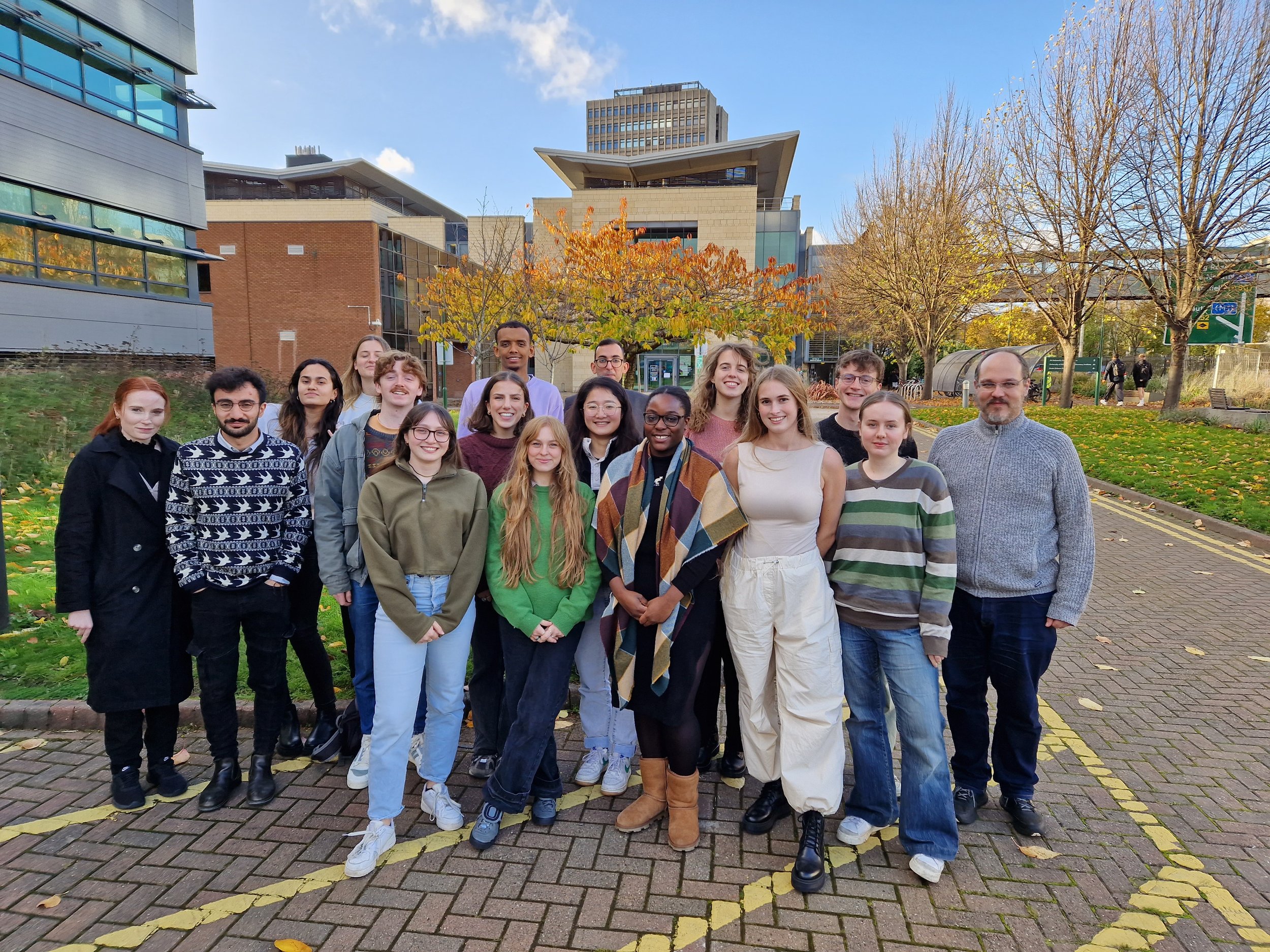
Equality, Diversity and Inclusion
The AMDD CDT’s Equality, Diversity & Inclusion (EDI) mission is to increase the diversity of PhD level graduates and retain talent from Black and other minoritised backgrounds for academic and industrial employers. We believe that excellence comes through nurturing and embracing diversity. To embody this, we commit to taking a leading position in PhD level training by creating a working environment that is open to all, supports diversity and that is a safe space for minoritised students and staff.
To accomplish our vision, we commit to:
Recruitment strategies and student support that recognises, encourages and embraces diversity, by addressing inequalities for students from Black and other minoritised backgrounds.
Provide an individualised mentoring programme that provides role models suitable to the individual students to nurture the diversity in our student population.
Ensure that academics, industry and all other CDT partners understand and commit to providing safe spaces to create a community that is conscientious in its responsibilities and engagements, with a particular emphasis on supporting students from Black and other minoritised backgrounds.
ED&I Working Group
The CDT’s EDI agenda is managed by a dedicated EDI working group consisting of academics from UCL and the University of Nottingham, a CDT manager, CDT students. The working group has at least one external member from a Black or other minoritised background with lived experience to advise the EDI working group.
The EDI working group advises and reports to the CDT operations group and implements the CDT’s EDI agenda in partnership with the CDT’s training and operations group.
The EDI working group is chaired by Mischa Zelzer (University of Nottingham).
EDI Recruitment Strategy
The main criteria for admission to the CDT program are excellence in academic achievements and passion for research in pharmaceutical sciences.
We understand that outputs and track records are affected by opportunities available to individuals and we will consider this when assessing candidates for admission. If you believe that we should know of any personal circumstances, you have the opportunity to mention these in the application form.
We have a particular interest and commitment to increase our uptake of candidates from Black and other minoritised backgrounds with awareness of the barriers they face in their academic career pathway progression. We strongly encourage candidates from these backgrounds to apply. We invite such candidates to contact us if for general queries about the CDT and the application process as well as specific queries about the support we offer to candidates from these backgrounds while studying with us.
Our Commitment to Fair and Inclusive Recruitment
At the Centre for Doctoral Training (CDT) in Accelerated Medicine Design & Development, we are dedicated to ensuring a fair and inclusive recruitment process. To achieve this, we implement the following measures:
Anonymised Applications: We anonymise all applications to remove any personal information and protected characteristics data. This includes the removal of names, gender, ethnicity, and the awarding institution's name. This ensures that all candidates are assessed solely on their qualifications and experience.
Blind Shortlisting Process: Our shortlisting process is conducted blind to further ensure fairness. The shortlisting panel reviews anonymised applications without access to personal details or degree classifications. This helps us focus on the candidates' academic and professional merits.
Guaranteed Interview Scheme: We offer a Guaranteed Interview Scheme for Home students who identify as Black or from a minoritised background. Eligible applicants who meet the criteria and qualify for UK fee status are guaranteed an interview.
For further details on the application process please visit the ‘How to Apply’ pages.
Student Experience
We understand that encouraging students from Black and other minoritised backgrounds to join our cohort places a duty of care upon us to ensure these students experience a safe and supportive work environment.
To meet our obligations, we are implementing steps to ensure the CDT is a safe space for students from Black and other minoritised backgrounds, including training of academic staff, CDT partners and CDT students. We understand the students will work in a larger community and we are therefore also engaging with operations more broadly within the University to influence the formation of safe spaces more broadly.
For personal and professional development, the CDT implements a mentorship programme that will be tailored to each student. In consultation with the student, external mentors focusing on the academic experience and career development will be identified and matched to each student to support them throughout the programme.
We offer accommodations for students with disabilities or caring responsibilities and the option to undertake part time studies.
Training Programme
The training programme of the CDT is developed in partnership with the EDI working group and explicitly and implicitly embeds EDI principles throughout the programme. Explicit EDI aspects of the training programme include, e.g., dedicated sessions on safe spaces, recognising and eliminating bias. Implicit EDI approaches in training include equal opportunities for personal development, training delivery from people from diverse backgrounds and adaptation to feedback from students and mentors.
Feedback on EDI aspects of the CDT
The EDI group will monitor the CDT’s EDI related activities and goals and occasionally ask students, academics and CDT partners for feedback to review and evaluate the impact of these activities.
We commit to creating an open and responsive environment for students.
Institutional Links
University College London
University of Nottingham

